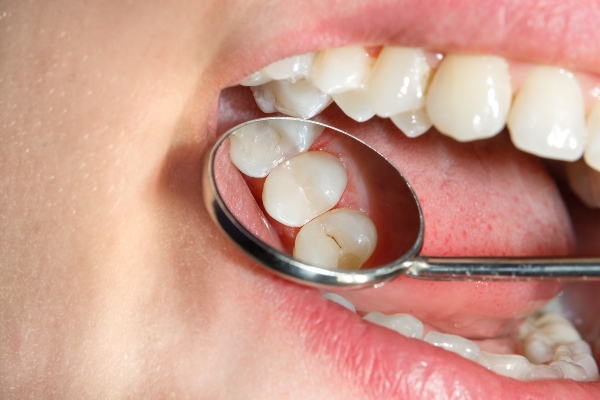Sedation for Kids to Help Calm Your Child

Pediatric dentists use sedation for children in various procedures and appointments. The goal of sedation is to ease nerves and fears that might come from visiting the dentist. Both low-level and extreme forms of sedation for kids work to keep the patient calm throughout the procedure and appointment.
Having an understanding of what sedation for kids is can be helpful for parents who are trying to prepare appropriately. Reviewing information beforehand also allows parents to support their children through the procedure and help set expectations ahead of time. Continue reading to find out more.
Understanding sedation for kids
The following review highlights how sedation for kids can be helpful for appointments or procedures that induce fear or anxiety. Parents should review this information ahead of time to better understand what to expect and what kind of sedation options are available.
Sedation options
When it comes to sedation for kids, a few options are used in pediatric dentistry to help keep nerves and fears calm. Below is a short overview containing details about each sedative.
The most common sedative pediatric dentists use for procedures with young patients is nitrous oxide, generally known as laughing gas. In addition to being used quite frequently for children, it is also often used for adults due to its relaxing effects. Nitrous oxide is a commonly used sedative because it does not have extremely long-lasting effects and is known to be very effective. Therefore, dentists typically recommend it for any appointment that may induce anxiety. They also almost always recommend nitrous oxide for procedures, such as cleanings and restorative treatments.
Laughing gas works via a mask and machine. First, the dentist places the mask over the patient's nose and mouth. The mask connects via a tube to the machine that contains the nitrous oxide. Typically, the patient will inhale it for about 15 to 20 minutes before the procedure or appointment. After that, it normally takes less than five to ten minutes for it to kick in.
The other commonly used method of sedation for kids in pediatric dentistry is oral sedatives, which are simply prescription medications. Oral sedatives are used for more in-depth procedures or if the patient suffers from extreme anxiety. For example, dental filling and crown placement can sometimes induce a lot of fear in pediatric patients due to the overstimulation of the sound of the drilling and the potential for pain. Another serious procedure that may call for an oral sedative is a root canal or tooth extraction.
Oral sedation for children intends to put the patient to sleep or have them unconscious. The goal is to reduce any possibilities of feeling pain and to eliminate any feelings of fear or anxiety completely. Dentists will provide the oral sedative ahead of time to allow for time to set in. Sometimes, it can take up to an hour for the effects to kick in, whereas, at other times, it may just take a few minutes.
In extreme cases, an intravenous sedation method might be required; however, this is rare and only specific to certain procedures. For example, a pediatric dentist might advise an intravenous sedative if oral surgery is needed, as the strength will be necessary to keep the child unconscious.
The role of a pediatric dentist
In pediatric dentistry, there is a big emphasis put on patient care. Pediatric dentists undergo training and education to properly prepare for working with patients under the age of 18 and as young as toddlers. Of course, people of all ages suffer from dental anxiety and nervousness; however, children, in particular, may have a harder time managing it.
With that being said, it is good to understand the role of a pediatric dentist. Not only are they focused on managing oral health, but they also want to ensure that children have a positive dental experience. Having positive dental experiences at a young age helps ensure dental appointments and care are not ignored later on in life.
Talk to a pediatric dentist today
When further curious about sedation for kids, it is recommended to talk directly with a pediatric dentist. The dentist can go over any specific questions or concerns parents may have about how sedatives work. Additionally, a pediatric dentist can evaluate which sedative might be most suitable for the patient and the procedure or type of appointment at hand. Reach out today to get scheduled or to learn more.
Request an appointment here: https://www.hvkidsmiles.com or call Hudson Valley Pediatric Dentistry at (845) 363-4177 for an appointment in our Middletown office.
Check out what others are saying about our dental services on Yelp: Sedation Dentist in Middletown, NY.
Recent Posts
Sedation dentistry aims to alleviate the stress and discomfort that many patients experience during dental checkups. The first time a child visits a dentist, they establish an opinion about dental care. Some youngsters fear going to the dentist because of the new sights, sounds, and scents they encounter there, while others develop an aversion to…
In pediatric dentistry, there is often a question of what options are available when it comes to mild and moderate sedation for kids. Patients of all ages suffer from dental anxiety and can benefit greatly from the use of dental sedation. However, children, in particular, can often undergo certain dental procedures more comfortably once the…
Pain free pediatric dentistry aims to make dental treatments more pleasant for your child, wither by using a local anesthetic or a sedative if the child has dental anxiety. Sedatives like nitrous oxide can make dental appointments more pleasant for nervous children. They are also sometimes recommended for complicated procedures that might require a child…
A significant aspect of pediatric dentistry is managing the behavior and anxiety of child patients. Pediatric dentists undergo training for this purpose, as they need to be good with kids to succeed in this field.A children’s dentist will use various tools to get their patient to cooperate for the duration of a procedure. One of…


